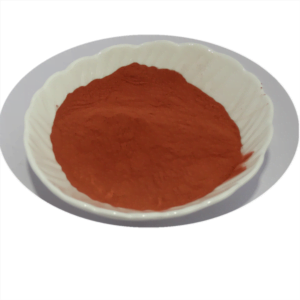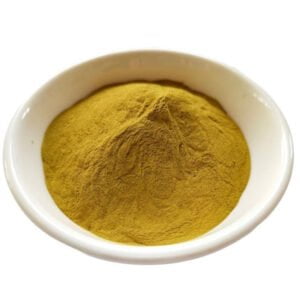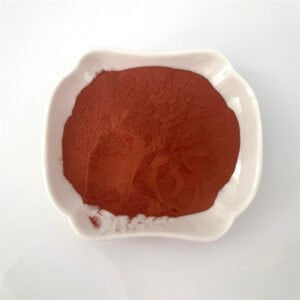High-Temperature Alloy M247
Table of Contents
Overview of High-Temperature Alloy M247
High-temperature alloys are essential in various industrial applications due to their excellent mechanical strength, corrosion resistance, and ability to maintain stability under extreme conditions. Among these, the M247 alloy stands out for its exceptional performance. This superalloy, commonly used in the aerospace and power generation industries, is a type of nickel-based alloy designed to withstand high temperatures and stress without losing its integrity. But what exactly makes M247 so special? Let’s dive deeper.
Composition of High-Temperature Alloy M247
The M247 alloy is a nickel-based superalloy, meaning its primary component is nickel. This metal is alloyed with various other elements to enhance its properties, such as resistance to oxidation, creep, and thermal fatigue. The exact composition can vary slightly depending on the manufacturer, but the general breakdown is as follows:
| Element | Composition (%) | Role in Alloy |
|---|---|---|
| Nickel (Ni) | 59.0 – 63.0 | Base element, provides high-temperature strength and corrosion resistance. |
| Chromium (Cr) | 8.0 – 10.0 | Enhances oxidation and corrosion resistance. |
| Cobalt (Co) | 9.0 – 10.5 | Increases strength and high-temperature stability. |
| Molybdenum (Mo) | 0.5 – 1.5 | Improves resistance to corrosion and enhances mechanical properties. |
| Tungsten (W) | 9.0 – 10.5 | Provides solid solution strengthening and improves high-temperature properties. |
| Aluminum (Al) | 5.5 – 6.5 | Contributes to the formation of a stable oxide layer, increasing oxidation resistance. |
| Titanium (Ti) | 0.5 – 1.5 | Enhances strength through precipitation hardening. |
| Tantalum (Ta) | 2.5 – 3.5 | Improves creep strength at high temperatures. |
| Carbon (C) | 0.13 – 0.17 | Adds strength through carbide formation. |
| Boron (B) | 0.015 – 0.020 | Enhances grain boundary strength and resistance to creep. |
| Zirconium (Zr) | 0.05 – 0.10 | Increases resistance to grain boundary sliding. |
Explanation of Composition: Each element in M247 serves a specific purpose, whether it’s to enhance strength, improve corrosion resistance, or stabilize the alloy at high temperatures. This balanced composition allows M247 to perform exceptionally well in environments where other materials would fail.
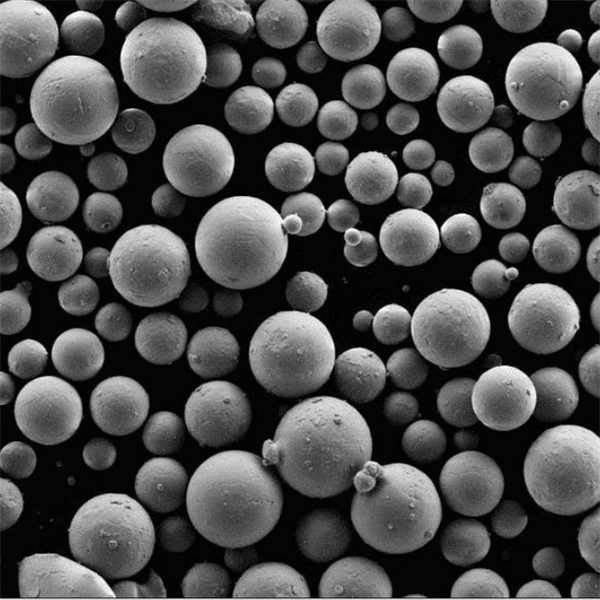
Characteristics of High-Temperature Alloy M247
What really sets M247 apart from other materials are its unique characteristics. These properties make it the go-to choice for applications requiring durability and reliability under extreme conditions.
| Characteristic | Description |
|---|---|
| High-Temperature Strength | Retains mechanical strength at temperatures up to 980°C (1800°F), making it ideal for turbine blades. |
| Oxidation Resistance | Resists oxidation and corrosion, ensuring longevity even in harsh environments. |
| Creep Resistance | Exhibits excellent resistance to creep, maintaining structural integrity under prolonged stress. |
| Thermal Fatigue Resistance | Withstands cyclic thermal loading without significant degradation, ideal for aerospace applications. |
| Microstructural Stability | Maintains a stable microstructure over time, preventing phase transformations that could weaken the alloy. |
Why It Matters: The combination of these characteristics ensures that components made from M247 will have a long service life, even in the most demanding applications. This reliability is why M247 is often used in critical parts like turbine blades and other components exposed to extreme conditions.
Advantages of High-Temperature Alloy M247
When selecting materials for high-stress, high-temperature applications, M247 offers several distinct advantages compared to other alloys:
| Advantage | Description |
|---|---|
| Superior Strength at High Temps | M247 maintains its mechanical properties even at temperatures nearing 1000°C, unlike many other alloys. |
| Corrosion and Oxidation Resistance | The alloy’s composition resists environmental degradation, making it ideal for harsh conditions. |
| Prolonged Creep Resistance | M247’s ability to resist creep ensures long-term stability and performance under constant stress. |
| Microstructural Stability | The alloy’s structure remains stable over time, preventing the weakening of the material. |
| Excellent Weldability | M247 can be welded without significant degradation in properties, making it versatile in manufacturing. |
In Simple Terms: M247 is like the all-star athlete of the alloy world—it’s tough, durable, and can perform under pressure, making it the top choice for demanding applications.
Applications of High-Temperature Alloy M247
Given its remarkable properties, M247 finds use in several high-stress, high-temperature environments. The alloy is particularly favored in the aerospace and power generation industries.
| Application | Reason for Use |
|---|---|
| Turbine Blades in Jet Engines | High-temperature strength and oxidation resistance make M247 ideal for withstanding the extreme conditions in jet engines. |
| Industrial Gas Turbines | Used in power generation, M247’s creep resistance ensures long-term operation without failure. |
| Nuclear Power Plant Components | The alloy’s stability under high heat and radiation makes it suitable for critical components in nuclear reactors. |
| Rocket Engines | M247’s ability to maintain integrity under extreme thermal stress is crucial for rocket propulsion systems. |
| Heat Exchangers | High resistance to corrosion and oxidation makes M247 suitable for use in harsh chemical environments. |
| Marine Turbines | The alloy’s resistance to corrosion and high-temperature performance are essential for marine applications. |
| Spacecraft Components | M247’s lightweight yet strong nature makes it ideal for the extreme conditions of space. |
| Chemical Processing Equipment | The alloy’s resistance to corrosive environments ensures longevity and reliability in chemical plants. |
| Automotive Turbochargers | High thermal stability and strength under cycling temperatures make it perfect for automotive applications. |
| Oil & Gas Industry Equipment | M247’s ability to withstand harsh environments and high temperatures makes it suitable for drilling and extraction tools. |
Specifications, Sizes, Grades, and Standards of High-Temperature Alloy M247
When selecting M247 for specific applications, understanding the available specifications, sizes, and standards is crucial. Here’s a detailed look:
| Specification/Standard | Description |
|---|---|
| ASTM B637 | Standard specification for precipitation-hardened nickel alloys, including M247. |
| AMS 5392 | Specification covering nickel-based alloy M247 castings. |
| Grade M247 | Refers to the standard grade of the alloy, typically used in high-temperature applications. |
| Sizes Available | Available in a range of diameters, from small rods to large billets, depending on the application. |
| Form Factors | M247 can be supplied in various forms including ingots, billets, forgings, and investment castings. |
| Heat Treatment | Typically subjected to solution and precipitation treatments to enhance mechanical properties. |
Practical Application: Choosing the right specification and form of M247 ensures that the material will perform optimally in its intended environment, whether it’s a small component in a jet engine or a large turbine blade.
Suppliers and Pricing of High-Temperature Alloy M247
When sourcing M247, it’s important to consider both quality and cost. Here’s a look at some of the key suppliers and an overview of pricing.
| Supplier | Location | Pricing (per kg) | Additional Notes |
|---|---|---|---|
| Special Metals | USA | $250 – $300 | Offers high-quality M247 with a focus on aerospace and power generation applications. |
| VDM Metals | Germany | $240 – $290 | Known for stringent quality controls and wide range of product forms. |
| ATI Metals | USA | $260 – $310 | Specializes in custom alloys and provides extensive technical support. |
| Precision Castparts | USA | $270 – $320 | Focuses on investment castings, particularly for aerospace applications. |
| Carpenter Technology | USA | $250 – $300 | Offers various grades of M247, with a focus on high-temperature performance. |
| Haynes International | USA | $260 – $310 | Provides M247 with an emphasis on corrosion-resistant applications. |
| Rolled Alloys | USA | $250 – $300 | Known for a wide distribution network and reliable supply chain. |
| Hit achi Metals | Japan | $260 – $310 | High-quality M247 with a focus on precision and performance. |
| Sandvik Materials | Sweden | $240 – $290 | Offers a range of sizes and forms, with excellent technical support. |
| Smiths Metal Centres | UK | $255 – $305 | Provides custom machining and processing services for M247. |
Comparing Pros and Cons of High-Temperature Alloy M247
Every material has its strengths and weaknesses. Here’s how M247 stacks up.
| Aspect | Pros | Cons |
|---|---|---|
| High-Temperature Performance | Maintains strength and stability at high temperatures, up to 980°C. | High temperature can lead to oxidation over time, though it’s relatively slow. |
| Corrosion Resistance | Excellent resistance to oxidation and corrosion in high-temperature environments. | Corrosion resistance can diminish in highly aggressive chemical environments. |
| Creep Resistance | Exceptional creep resistance ensures long-term reliability under continuous stress. | May require specific heat treatments to achieve optimal creep resistance. |
| Machinability | Good weldability and machinability, allowing for flexibility in manufacturing. | Machining can be challenging due to the hardness of the material, requiring specialized tools. |
| Cost | High performance justifies the cost in critical applications. | Relatively expensive compared to other alloys, making it less feasible for non-critical applications. |
| Availability | Widely available from multiple suppliers, ensuring supply chain reliability. | Specific sizes and forms may have longer lead times depending on the supplier. |
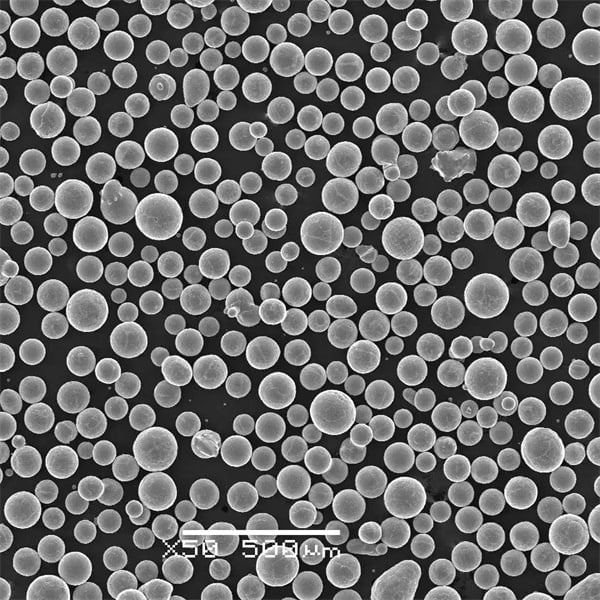
FAQ
| Question | Answer |
|---|---|
| What is M247 primarily used for? | M247 is primarily used in high-temperature, high-stress applications such as turbine blades in jet engines and industrial gas turbines. |
| How does M247 compare to other nickel-based alloys? | M247 offers superior creep resistance and high-temperature performance compared to many other nickel-based alloys, making it ideal for extreme environments. |
| Is M247 difficult to machine? | Yes, M247 can be challenging to machine due to its hardness, requiring specialized tools and techniques. However, its excellent weldability makes it versatile in manufacturing. |
| What are the main elements in M247? | The main elements in M247 include nickel, chromium, cobalt, tungsten, aluminum, and titanium, each contributing to the alloy’s high-temperature performance. |
| Can M247 be used in corrosive environments? | M247 is highly resistant to oxidation and corrosion, making it suitable for harsh environments, although extremely aggressive chemical conditions may reduce its effectiveness. |
| Where can I buy M247? | M247 can be purchased from various suppliers worldwide, including Special Metals, ATI Metals, and Haynes International. Prices vary depending on the supplier and specifications. |
| What are the heat treatment requirements for M247? | M247 typically requires solution and precipitation heat treatments to enhance its mechanical properties, particularly creep resistance. |
| How does M247 perform under thermal fatigue? | M247 exhibits excellent thermal fatigue resistance, maintaining its integrity even under cyclic thermal loading, which is crucial for aerospace and power generation applications. |
| Is M247 suitable for space applications? | Yes, M247 is used in spacecraft components due to its high strength-to-weight ratio and ability to withstand extreme thermal and mechanical stress. |
| What makes M247 expensive? | The high cost of raw materials, complex manufacturing processes, and the alloy’s superior performance characteristics contribute to its higher price compared to other materials. |
Conclusion
High-Temperature Alloy M247 is a remarkable material, combining strength, stability, and resistance to extreme conditions, making it indispensable in industries where performance cannot be compromised. Whether in the roaring engines of jet planes or the demanding environment of a nuclear reactor, M247 is the unsung hero that ensures safety, efficiency, and longevity. As technology advances and demands on materials increase, alloys like M247 will continue to play a crucial role in pushing the boundaries of what’s possible.
Share On
MET3DP Technology Co., LTD is a leading provider of additive manufacturing solutions headquartered in Qingdao, China. Our company specializes in 3D printing equipment and high-performance metal powders for industrial applications.
Inquiry to get best price and customized Solution for your business!
Related Articles
About Met3DP
Recent Update
Our Product
CONTACT US
Any questions? Send us message now! We’ll serve your request with a whole team after receiving your message.

Metal Powders for 3D Printing and Additive Manufacturing
COMPANY
PRODUCT
cONTACT INFO
- Qingdao City, Shandong, China
- [email protected]
- [email protected]
- +86 19116340731











